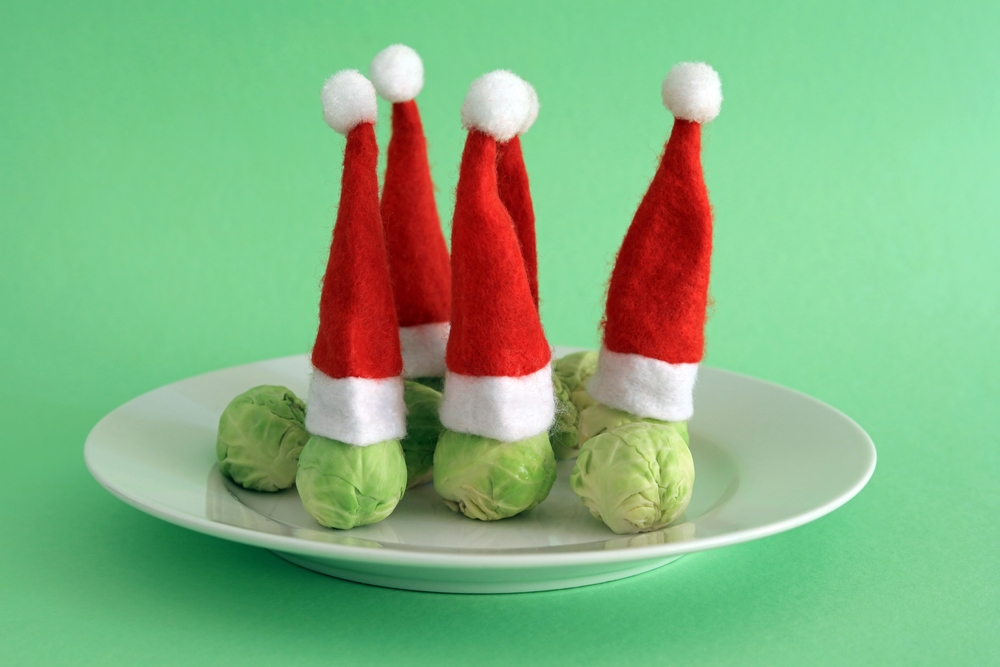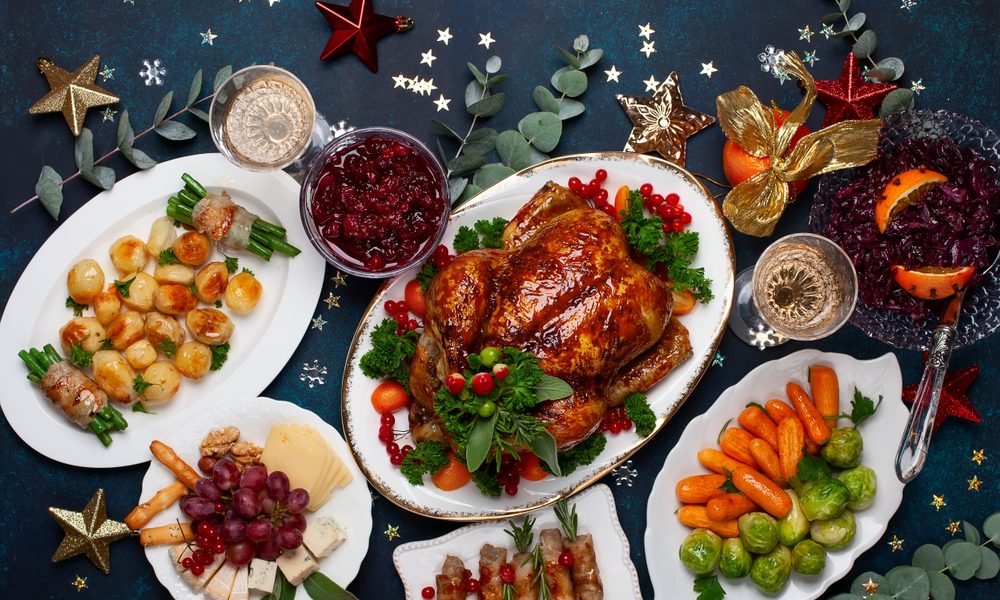The Christmas period comes with a month full of prosecco popping, chocolate gobbling and mince pie munching, not to mention your feast of choice on December 25th.
Eating and drinking with your family and friends at Christmas is supposed to be one of life’s pleasures, but Christmas can be a challenging time for our gut health.
From the big blowout dinner that can remain in the stomach for up to two hours while gastric juices try to break it down into an easily digestible form, to that all too familiar full feeling and bloating, a staggering two-thirds of Brits will suffer from ‘jingle bowels’ over the festive period*.
As the holiday season approaches, we often find ourselves caught up in the hustle and bustle of end-of-year work deadlines, Christmas parties, last-minute shopping, and family gatherings. While these festive activities can be enjoyable, they can also affect our gut health.
Consumer-led research undertaken by prebiotic supplement brand Bimuno has revealed that 16 percent of 16-24-year-olds have left a festive gathering due to digestive discomfort and wind. And the problem is so bad for some that 12 percent admitted to avoiding certain classics like Christmas pudding, mulled wine and even mince pies.
“You just eat these foods blindly without actually realising,” says Nutritional Therapist Farzanah Nasser. “That’s why it’s also important to incorporate things that help with your digestion and your gut as well.”
Sprout… sprout.. let it all out
No matter how active or healthy you may be or feel, the Christmas tradition of filling up on stuffing balls, wine, Quality Street and other Christmas non-negotiables around the clock, can derail that feeling entirely.

Sprouts are a vital part of our Christmas dinner and the most divisive item on any festive menu in equal measure. Still, according to new consumer-led research from prebiotic supplement brand Bimuno, more than 72 percent of Britons are ‘likely’ to throw sprouts down their hatches in 2023.
And that is music to the ears of Nasser, who says: “Brussels sprouts are a brilliant food. They are cruciferous vegetables and so if you have too many, it can make you feel really uncomfortable. But it’s a powerful and amazing vegetable that you should have as much of as you can. Starting your meal with something like that can help how you feel than if you started with potatoes or carbohydrates. Sprouts are such a healthy vegetable, they’re probably one of the healthiest vegetables, and you definitely want to get them in.”
54 percent of the UK, or 36.4 million, are very likely to consume sprouts on December 25, with a further 18 percent somewhat likely. 21 percent consider themselves unlikely to chow down on the so-called ‘mini cabbages’, and 17 percent of the UK consider them a sprout’n out misery.
The humble sprout appear to be a significant miss with the youngsters. Less than 32 percent of 18-24-year-olds, under 36 percent of 25-34-year-olds and less than 45 percent of 35-44-year-olds, plan on eating the veg on December 25th, whereas 59 percent and 70 percent of 55-64 and 65 and overs are ‘very likely’ to consume the so-called mini cabbages.
More stuffed than the turkey
Come December 26th, it’s common to feel a sudden thud of guilt about indulging so readily, alongside a heavy feeling of indigestion.
While it’s a case of ‘ho, ho, no!’ for most Britons who eat, drink and merry themselves to their heart’s content at Christmas, Bimuno’s consumer-led research has revealed that a growing number are looking to beat the infamous Boxing Day bloat.
Hot on the heels of an onslaught of festive fun in the build-up, 60 percent (that’s 40.4 million Brits) feel the season of festive excess peaks on December 25th. 12 percent plump for Boxing Day and the annual mopping up of leftovers, while four percent join Santa and Rudolph, and their respective mince pies and carrots, by gorging on the eve of the big day.
But perhaps the most pertinent finding is that 16 percent of people, or 10.7 million, now actively seek to chart their way through the festive overindulgence unscathed.
“Christmas is a time where we just need to be sensible by making certain choices, and by doing particular things,” Nasser points out. “Mindful eating is great for improving digestion and reducing any gut-related symptoms you can experience after a meal. Chewing properly can be hugely beneficial in managing bloating and gas, since it is an important first step in digestion. Fast-paced eating doesn’t necessarily allow the gut ample time to break down food as efficiently, which can result in increased bloating.
“If you’re eating a lot of excess fat and carbs, you’ll struggle. You’ll feel more nauseous. You’ll feel more tired and sluggish, and you may have more gut issues, endure bloating, or feel uncomfortable in yourself. The kind of calorific load we’re talking about here can affect a lot of different systems.
“That said, it’s also important to enjoy Christmas. And I don’t think it’s ever about, ‘no, you can’t have that’, it’s about reaching for the healthy options, too, when they are available.”
Auld Langxiety
We’ve been making New Year resolutions for over 4,000 years, with Babylonians making them to their Gods to mark the start of a 12-day New Year celebration festival called Akitu. However, it appears droves of us are giving up on the ‘new year, new you’ a few weeks on from making them – and that’s if we make one at all.
With the start of the New Year serving as an opportunity for many to set new goals and commit to better habits, 57 percent of the UK population chooses not to set them at all – let alone keep them, refusing to succumb to societal pressure and Instagram highlights. Most attempts at New Year’s resolutions and self-improvement fizzle out quickly, with a staggering 85 percent now abstaining from annual resolution-making or failing to keep them beyond six months.
Often, people aim too high too quickly. We’re just not realistic about our goals. It’s pretty common for New Year’s resolutions to be around health and body weight. Still, people expect quick results and don’t realise that many areas can be worked on to support our health, fitness and/or body weight, including diet, exercise, activity, sleep, and other lifestyle factors and behaviours such as smoking.
We often pick optimistic New Year’s resolutions that, come February, have already fallen by the wayside. And despite their fresh-faced optimism, 25 percent of 18-24-year-olds slip up within the first two months, and 68 percent within the first eight months. Noticeably, no 18-24-year-old sees in the subsequent new year with their resolution intact.
Resolutions that withstand the test of time represent an exclusive club, with just two percent of the UK expecting to be sat here at the same time next year, having held themselves accountable to their lofty promises.
“I think it’s more about incorporating healthy habits,” says Nasser. “I’m all about habit stacking. I don’t believe in making seven resolutions because that’s really hard – you’ve got seven things to live up to from the get-go.
“I think it’s more about healthy habits. During the first week of January, people are still not feeling great. But then, after the first week, maybe commit to walking every day after dinner for 30 minutes. Then, the next week, try to incorporate another habit, say drinking more water or staying hydrated. And then, in the third week, start going to bed at 10:00 pm to get a little more sleep. Whatever the habits are, stacking them makes it so much more achievable.”
No more jingle bowels
While the once-a-year indulgence is worth it in many ways, you needn’t continue to struggle through with your top button undone on your jeans or hiding your bloated tum under your Christmas jumper in a bid to allow for your stomach’s inevitable expansion.
From prebiotics to portion size, nutritional therapist Farzanah has some simple tips to get your gut through December…
- Rest and digest: be sure to chew food thoroughly, as chewing properly can be hugely beneficial in managing bloating and gas, since it is an important first step in digestion. Also, take time over meals. Fast-paced eating doesn’t necessarily allow the gut ample time to break down food as efficiently, which can result in increased bloating. Take more time over meals and take one forkful at a time. It’s easier said than done at the family Christmas lunch but try your best!
- Practise daily mindfulness: one of the biggest triggers for digestive discomfort, including bloating, can be increased amounts of stress, which can also be heightened in the run-up to Christmas. Some daily mindfulness practices can be incredibly effective in managing stress, especially when it is consistent. This could be meditation or simple breathing exercises like the four-part breath – breathing in for four seconds, holding for four, breathing out for four and holding on empty for four.
- Factor in enough fibre: bloating can often result from constipation or slower movement through the gut, and with all the festive treats at Christmas, we can fall short. Sufficient amounts of fibre are essential to support regular bowel movements. Fibre is found in vegetables, fruit, whole grains, and nuts and seeds, so try to aim for a variety of any or all of these. When not at festive gatherings, put together a few concerted veggie-based meals to help hit your quota.
- Drink moderately and be merry: alcohol can create heightened inflammation and irritation to the gut, which can then lead to bloating. Make sure you drink alcohol with or after some food, and not on an empty stomach, to prevent this from happening. And stick to a moderate two glasses if you do choose to drink alcohol.
- Go for a post-dinner walk: a gentle, stress-reducing walk after a meal can have a positive impact on our digestion. Any activity that helps reduce our cortisol levels will positively impact our wellbeing, so simply walking a few times on either side of the big day can be an easy way to incorporate this throughout the festive period.
*Survey of 2,000 UK Adults (Nationally Representative) who celebrate Christmas.



















